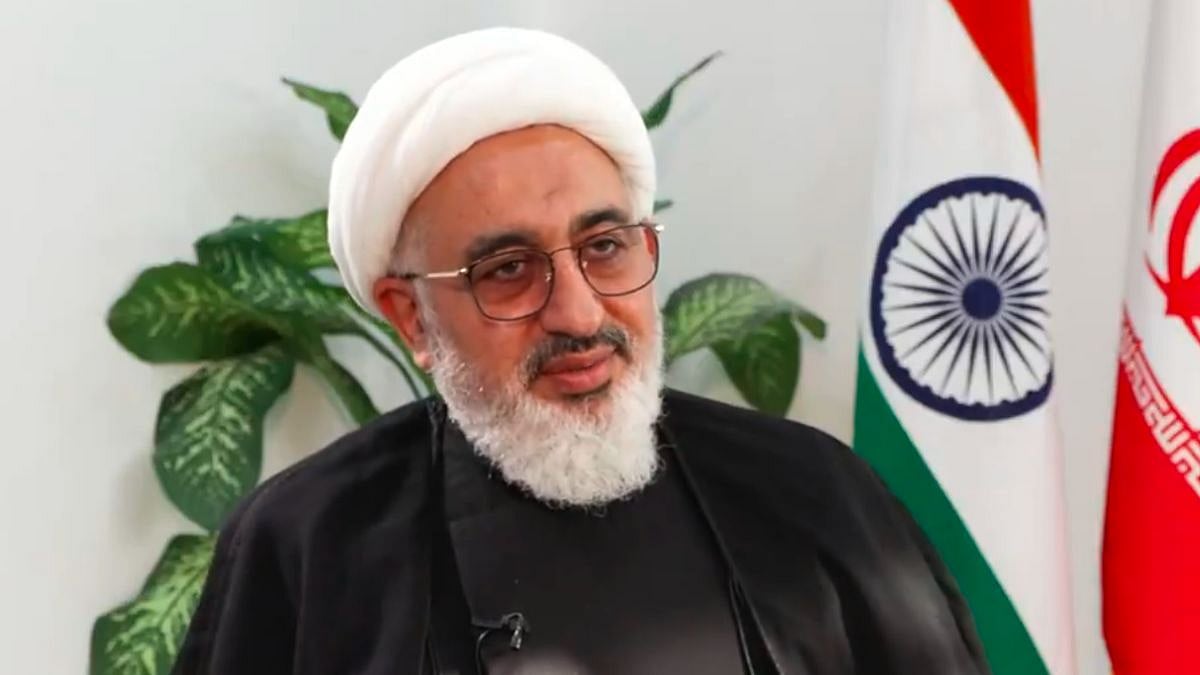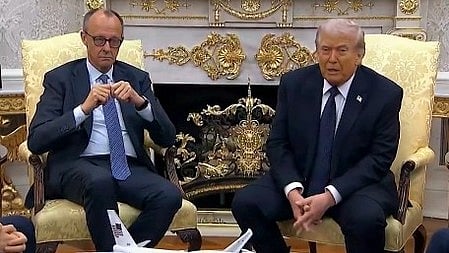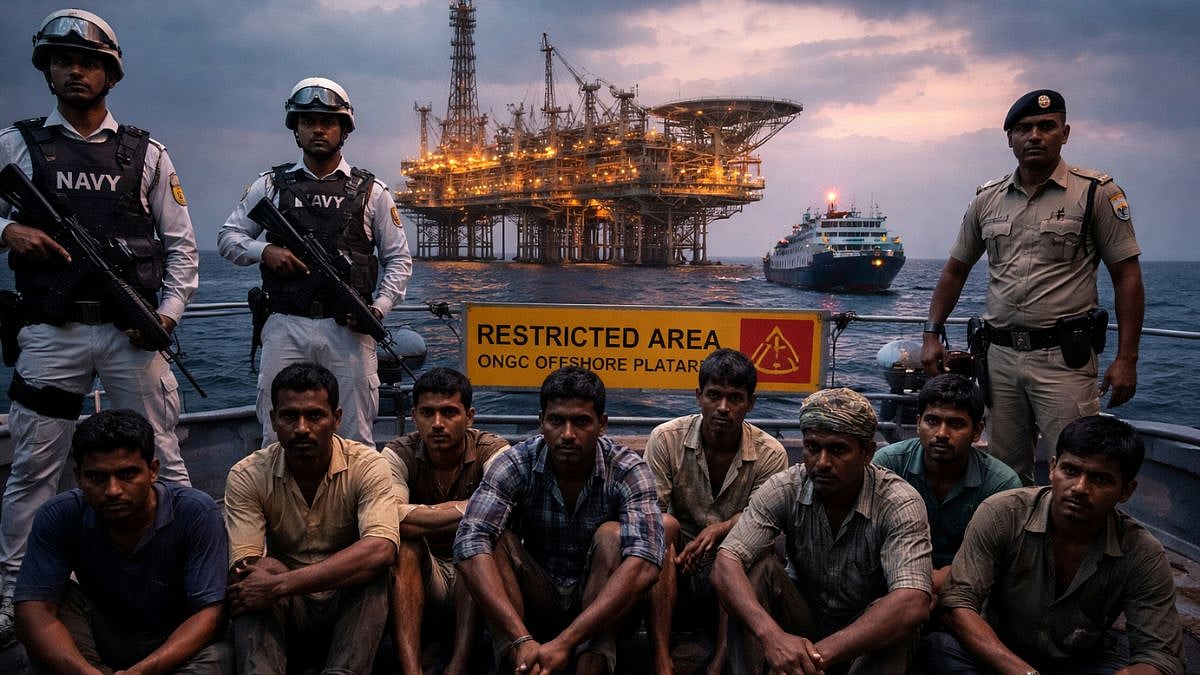Till October 1, the mystery in the current Middle East conflict was: why Iran had responded so meekly to recent attacks on its top officials and close allies. Iran’s tepid response to a series of attacks – the killing of its top military official in a drone attack in 2020 by the US, the killing of several other officials by Isreal by bombing Iran’s consulate in Syria in April this years, the recent assassination of Ismail Haniyeh, a senior political leader of Hamas, a group that Iran supports, the killing of Hezbollah chief Hassan Nasrallah two weeks ago and the decimation of the leadership of Hezbollah, a militant group in Lebanon that’s even closer to Iran than Hamas – was marked largely by its silence and caution against Israel’s increasing belligerence.
Iran’s strategic silence may be explained by the fact that it is not as strong, both economically and militarily, as it wants the world to believe, given that it is an international pariah and dealing with severe economic problems because of US sanctions. Israel’s superior military capability would likely do serious damage to Iran in event of a direct conflict with the Jewish state. So, avoiding a direct fight with Israel over the past year in the aftermath of October 7, 2023 attack on Israel by Hamas was in the best interest of Iran, which remained content fighting the former through its allies – Hamas, Hezbollah, and Houthis, known as the ‘axis of resistance’.
But Iran’s ballistic missile attack against Israel on October 1 was a significant escalation in the conflict between the two states. And Israel has promised a significant and serious retaliation, which could include direct strikes on Teheran. Iran’s attack came in the aftermath of Israel’s killing of Nasrallah, given its close ties with Hezbollah. This means Iran is now deeply invested in the outcome of the hostilities in Lebanon, which is now an active front in the conflict in the region after Israeli troops invaded southern Lebanon last week. One does not know what will be the consequences of Israel’s ‘limited’ ground operation and accompanying deadly air strikes on Lebanon, which have continued since the killing of Nasrallah.
Over the last three weeks, more than 2,000 people have reportedly died, including women and children and more than a lakh have been displaced in Lebanon where a million people are reportedly homeless. This is a new and dangerous moment for Lebanon and the Middle East. Far from preventing the conflict, Israel’s ground operation and air strikes will only pave the way for more violence and deaths of civilians. The impact of Lebanon’s invasion, supposed to be on a smaller scale, to target Hezbollah fighters is being felt by civilians. We have seen what happened in Rafah: the ground operation was supposed to be ‘limited’, but the outcome was as devastating as across Gaza. This is because in the Middle East conflict, outcomes of limited operations are not entirely determined by one party: tit-for-tat between Israel and others (Hamas, Hezbollah, and Iran) has sometimes terrifying consequences.
Through its ground invasion, Israel may be hoping to break Hezbollah’s spirit, but despite tactical success in decapitating the militant group, it is unlikely that Israel will succeed in crushing Hezbollah. One year after being attacked by Hamas, Israel has not won the battle on the ground or the battle for a good story to tell about itself and this war. So far Israel has also not had a great success in decapitating Hamas, which it was aiming for. With the retaliatory cycle spinning faster and civilians paying a price, widespread devastation, humiliation and anger among Gazans and Lebanese people do not present an avenue for peace with Israel, given the unprecedented humanitarian crisis in Gaza and largescale displacement of people in Lebanon.
Tens of thousands lie dead in Gaza and the death toll in Lebanon is rising every day. With Gaza in ruins and Lebanon under siege, there is hardly a defence for Israel’s actions. It has often used ‘existential threat’ as an excuse for its out-of-control defiance. A common defence of Israel’s actions is that its aggression is justified because it is surrounded by hostile countries that are trying to ‘annihilate’ it. With rock-solid backing from the US with steady supply of arms and financial aid and the UK and France as its key allies shielding and protecting Israel, it is a delusion that any Middle East country is capable of annihilating Israel. Like many arguments that attempt to justify that Israel has the right to defend itself, the same arguments should also apply to Palestine and other Arab countries that fear Israel’s military might and feels insecure because of its hostile attitude.
The events of the last few months raise several questions about the difficult prospects of peace in the Middle East. The escalation of conflict and Israel’s insistence on achieving its ‘goal’ that still eludes it in the quagmire of Gaza, shows that there is no outright winner in the Isreal-Gaza-Palestine conflict, which now includes new players. If in a situation where civilians are caught in the conflict between Israel and militant groups in Lebanon and Gaza and Israel tries to justify their deaths with the argument that it will use its full force to defend itself irrespective of consequences, then there is no limit on the civilian lives sacrificed and infrastructure destroyed, all in the name of self-defence drawing on fears of an ‘existential threat’.
The Gaza war has endured so long and its impact so devastating on Gazans that the world’s focus has gone away from the historical context of the fundamental problem that is the cause of the persisting conflict in the Middle East, which cannot be ended by military means. The source of Israel’s security challenges, which is at the heart of the conflict, is Israel’s siege of Gaza, its atrocities in the West Bank, its continuing occupation of the territories which it has been ordered by the UN security council resolutions to vacate, and its illegal expansion of settlements in the West Bank. If these conditions continue, there will be no stability in the region and the wider Arab world. Without a diplomatic process, that includes a fair settlement for Palestinians, there is no resolution to this open-ended conflict.
The writer is a senior independent Mumbai-based journalist. He tweets at @ali_chougule






